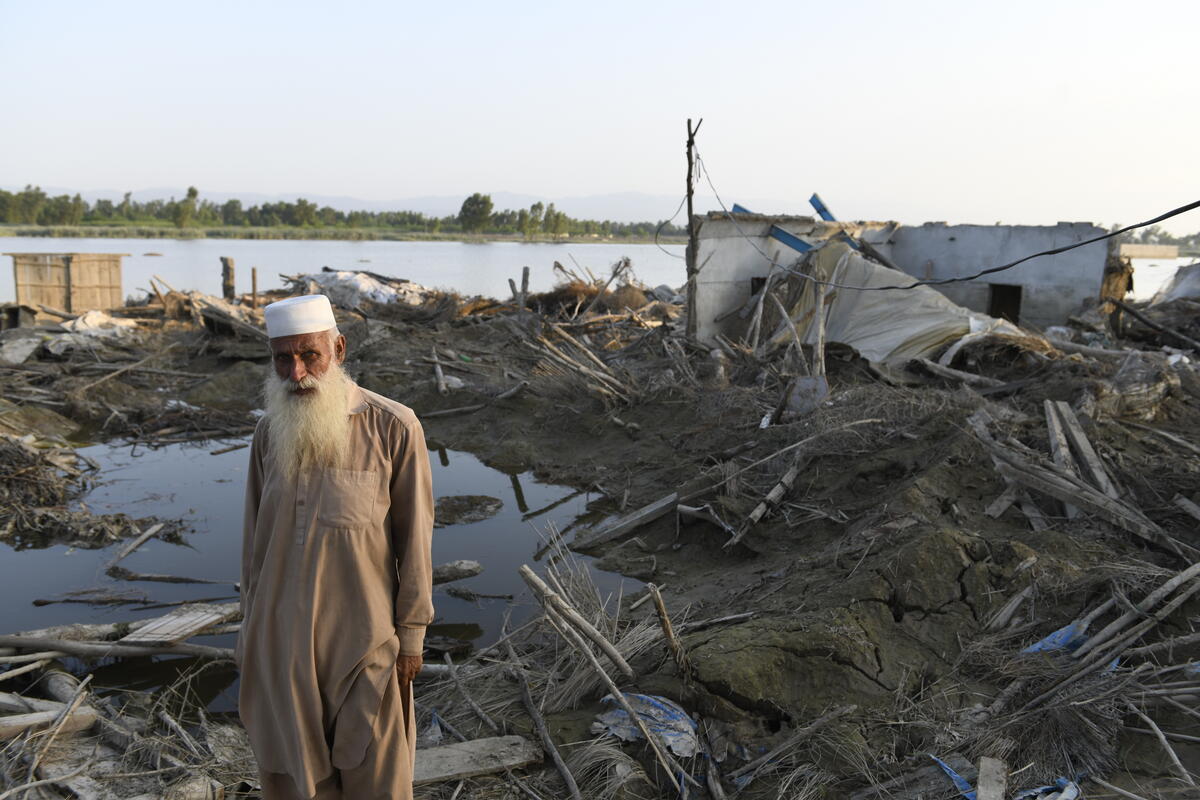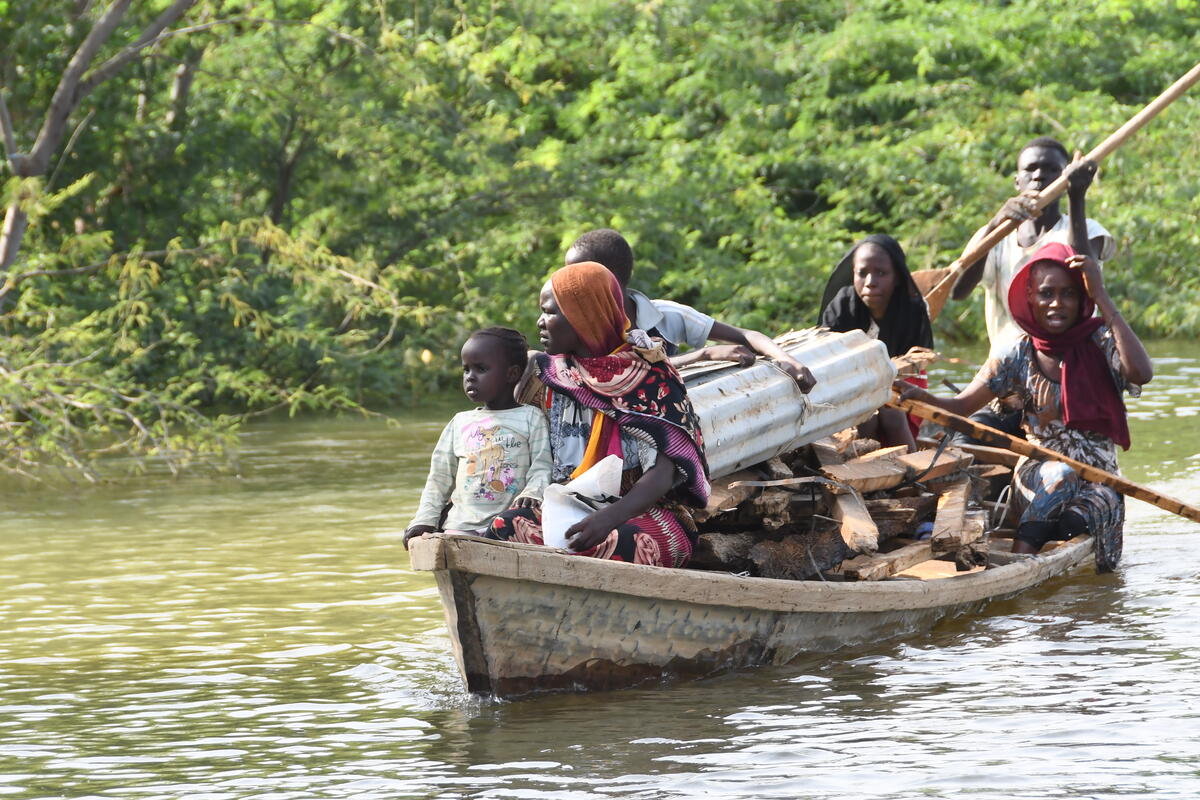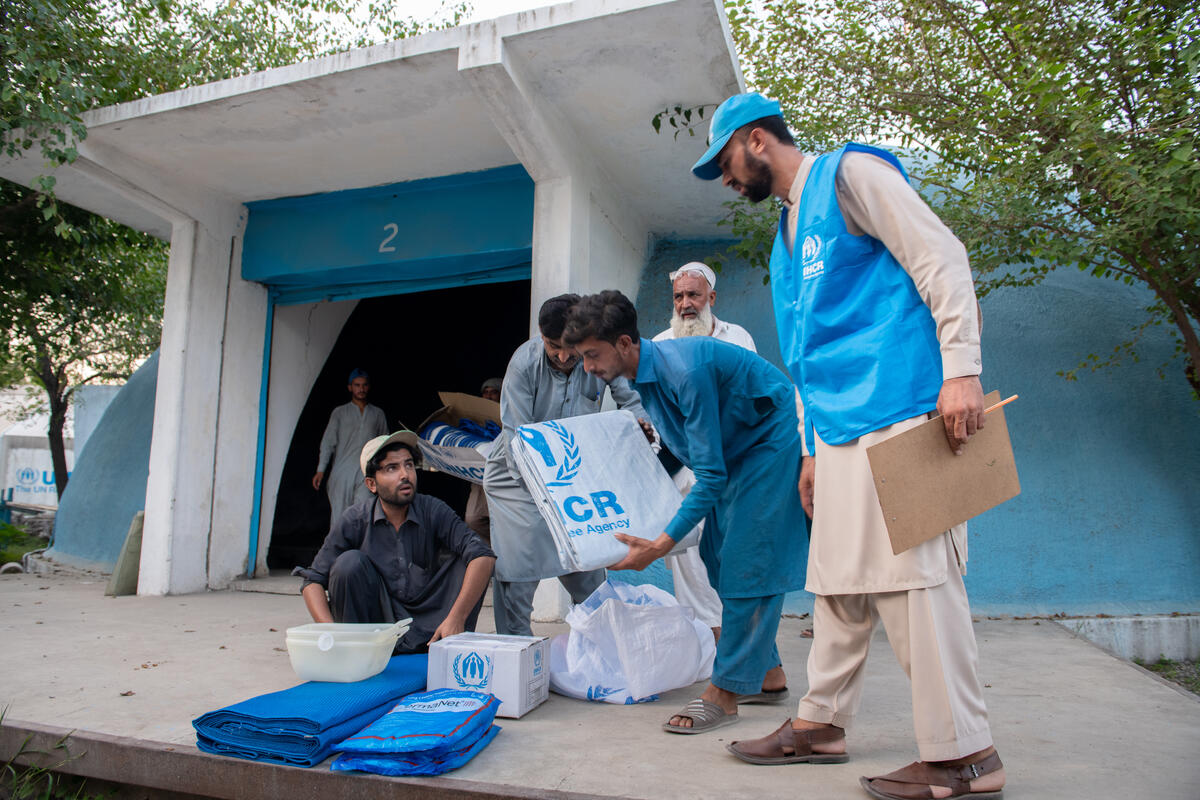New homes offer new lives for flood victims in Pakistan
New homes offer new lives for flood victims in Pakistan

DERA GHAZI KHAN, Pakistan, May 23 (UNHCR) - The UN refugee agency has joined local authorities in handing over ownership of 400 new one-room homes to a fishing community in Pakistan left homeless by devastating floods in 2010.
The families receiving the new shelters belong to the Jam community, which for decades has lived along the banks of the Indus River in makeshift huts, or simply under their boats. Their homes and what few belongings they had were washed away by the floods that inundated large areas of Pakistan in 2010. UNHCR wrote about their plight in a story published on this web site in May last year.
"We're not used to such houses," said Zakir Hussain, who moved into the Boat Model Town with his family several months ago. "At first, we experienced a bit of culture shock, but now we are so grateful to have a solid roof over our heads."
The land for the new development was provided by the government of Punjab province and each unit consists of one common room, a small kitchen and separate toilet.
The families' new ownership of land and property is complemented by the gradual restoration of many basic rights that this marginalized group have been denied for decades. There are also plans for them to receive national identity cards, and they will have their own community centre, a mosque and water supply as well as access to health care and education.
The shelters are part of nearly 4,000 one-room houses that UNHCR has constructed for flood victims in areas of Punjab that were damaged in the floods. The agency's flood response interventions targeted the most vulnerable among the flood victims, including people with disabilities, female headed households and families unable to rebuild their own houses.
"We used to drink river water and we had no health and sanitation facilities, no schooling for the children," said Zakir's wife, Bashir, recalling their former lives. "For us, who were born and grew up on the boats, having a home and being able to live a normal life is like a dream."
Speaking at the handover ceremony, UNHCR Representative in Pakistan Neill Wright thanked the government of Pakistan and, in particular the Punjab administration, for providing the land. "Access to shelter is a basic human right," he said. "I am proud that together with government and non-governmental partners, UNHCR has been able to support the government in assisting some of the most vulnerable victims of the devastating 2010 floods."
In addition to the shelters in Punjab, UNHCR has constructed nearly 30,000 additional homes in the provinces of Sindh, Balochistan and Khyber Pakhtunkhwa, which were also affected by floods in 2010 and again in 2011.
By Qaiser Khan Afridi in Dera Ghazi Khan, Pakistan








